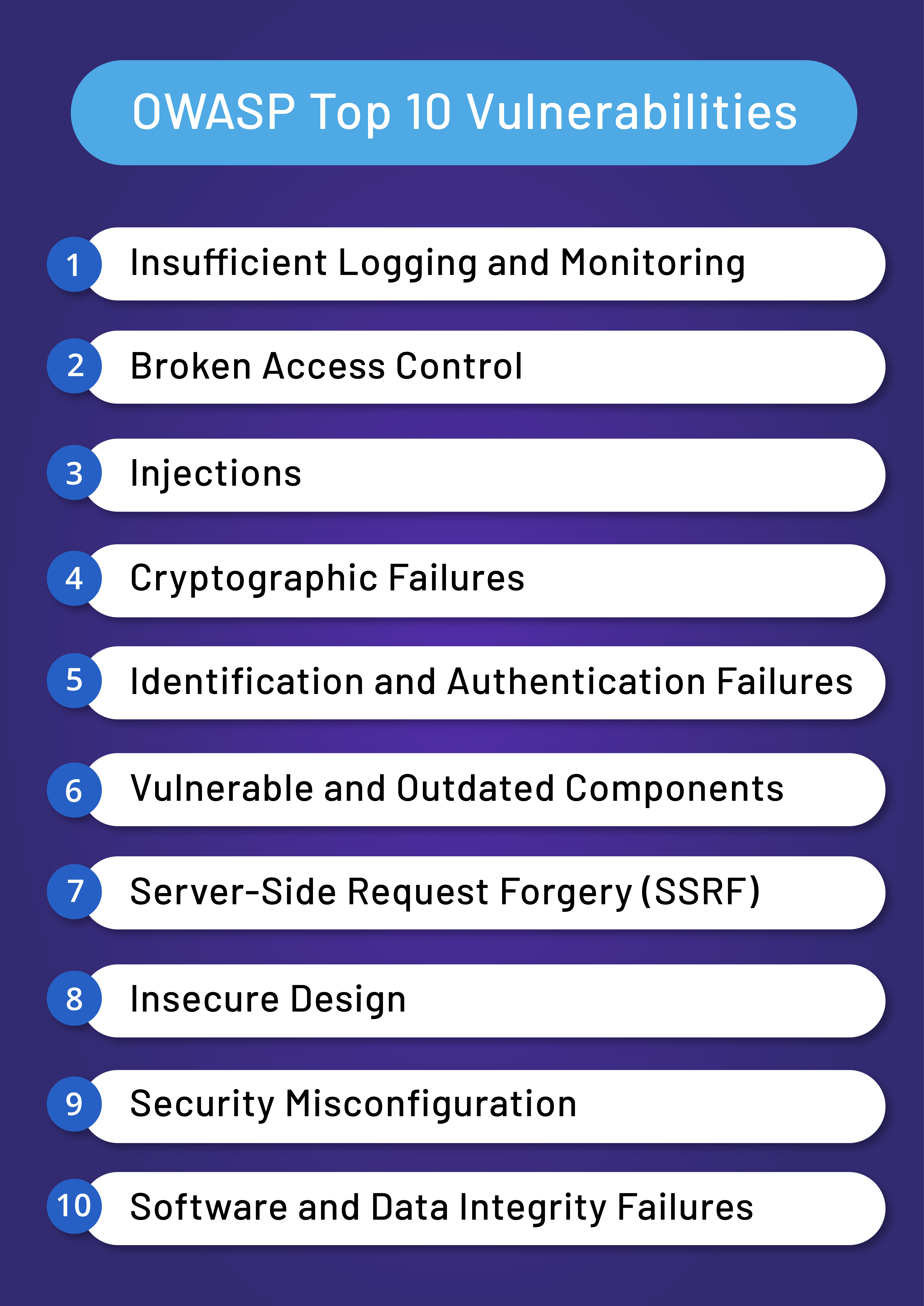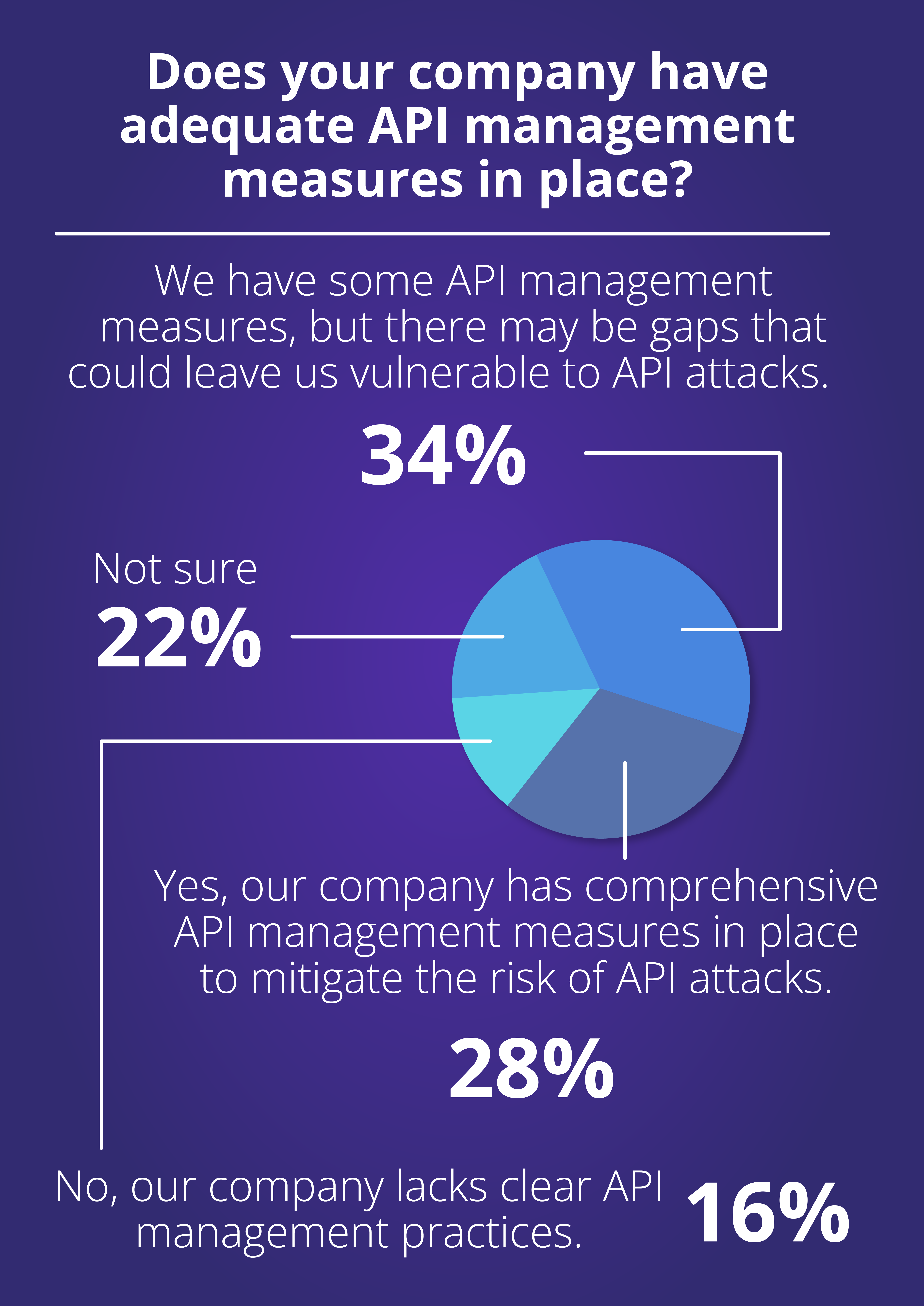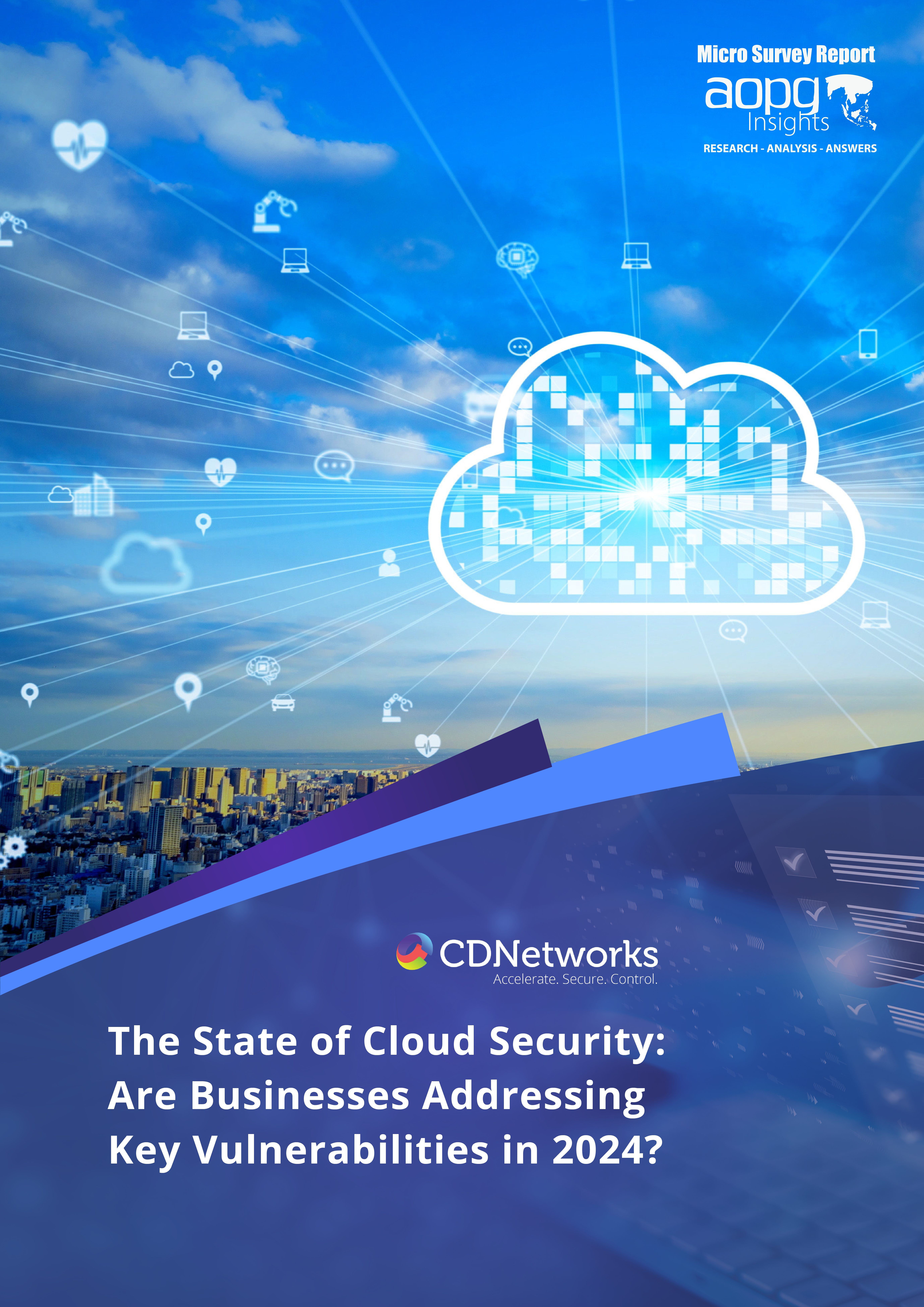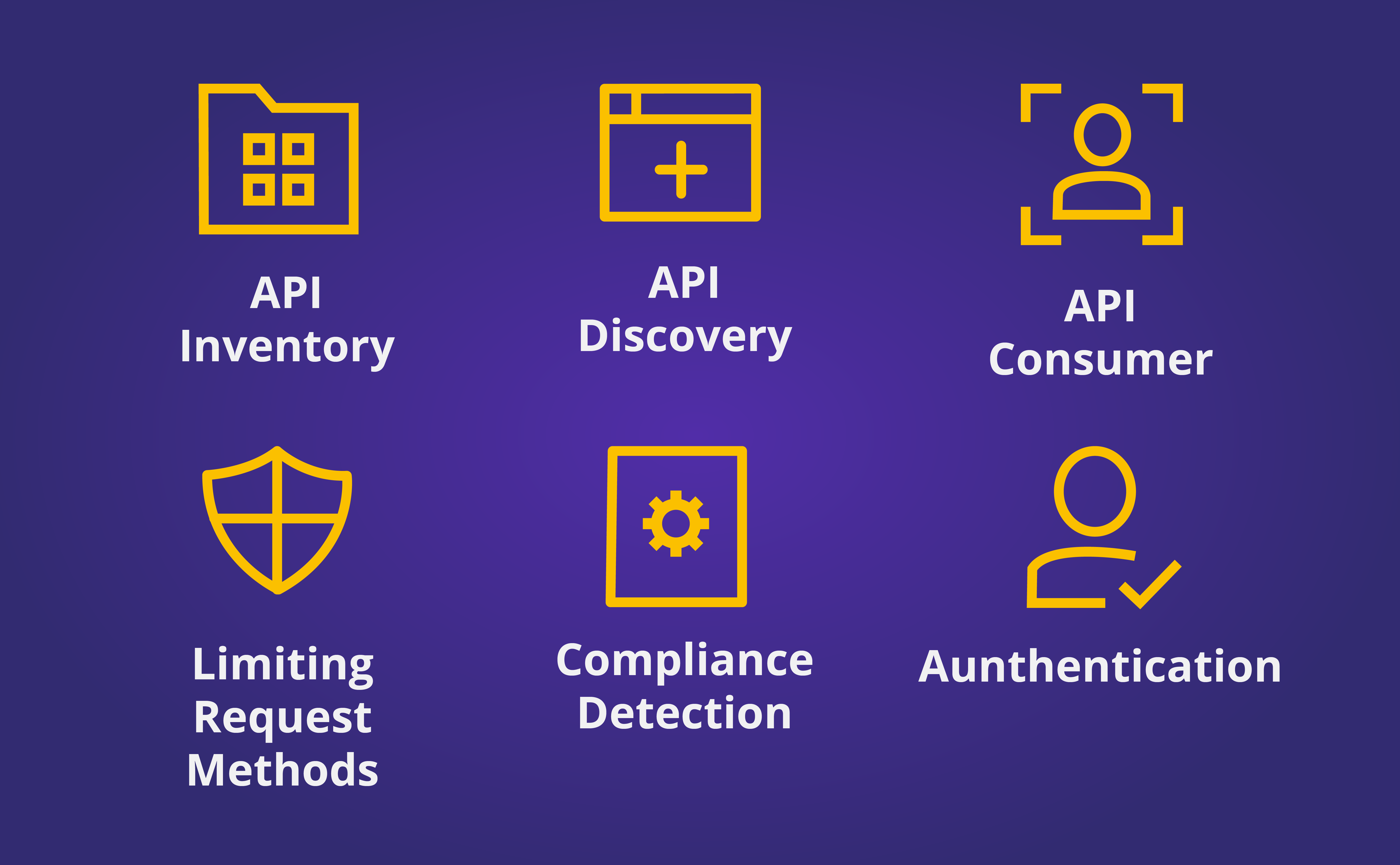

API vulnerabilities are security weaknesses in an Application Programming Interface (API). An API is a set of rules and protocols that allows different software applications to communicate with each other. It defines how requests and responses should be structured, enabling developers to access the functionality or data of another service without needing to understand its internal workings.
OWASP has identified 10 critical API security risks that every company should be aware of.
Click here to learn more
API vulnerabilities pose a significant threat because they can provide cybercriminals with direct access to a company’s sensitive data and critical services. These vulnerabilities often arise from improper authentication, insufficient validation of inputs, or exposure of sensitive data.
Since APIs often handle large volumes of requests and facilitate interactions between different systems, they have become attractive targets for attackers, whose attack methods include injecting malicious code, exploiting authentication flaws, and launching denial-of-service attacks, to breach these gateways. Once inside, they can steal data, disrupt operations, and cause substantial financial as well as reputational damage.

According to the CDNetworks’ “The State of Cloud Security: Are Businesses Addressing Key Vulnerabilities in 2024?” report, only 28% of respondents have comprehensive measures to secure their APIs, while 34% admit to potentially having gaps in this regard. Worse, 16% say their company has no protection against API vulnerabilities, indicating either a lack of awareness of the risks posed by unsecured API or a lack of proactive action. The survey results highlight a critical gap in API security preparedness for many companies—a gap that could pose major problems given the ubiquitous use of APIs. As previously mentioned, today APIs serve as gateways to a company’s data and services, rendering them prime targets for cyber threats. Therefore, effective API management is essential to safeguarding these critical access points and protecting organisational assets from potential exploitation.

AOPG Insights recently partnered with CDNetworks, a global leader in Content Delivery Networks (CDN), and conducted a micro-survey—titled “State of Cloud Security: Are Businesses Addressing Key Vulnerabilities in 2024?”—to assess cloud security readiness among organisations in the region. The findings were mixed, offering encouraging insights that suggest progress, but also highlighting areas of concern that require immediate attention.
Key takeaways include:
• Cybersecurity Gaps: Companies see the need for cybersecurity but lack readiness and resources in API security, monitoring, and threat intelligence.
• Mixed Practices: While awareness and multi-layered cloud security are improving, gaps in API management and data security persist.
• MSSP Interest: Growing interest in Managed Security Service Providers (MSSPs) reflects a need for enhanced security and support for resource-limited companies.
Find out more about the survey and its findings and recommendations HERE:
Click here to download the survey now
CDNetworks’ API Shield is an API security service designed to identify flaws in APIs and harden your API security posture.
Unlike one-off tools and scanners, API Shield is based on a platform of capabilities that combines management, protection, and analysis functions. Rooted in CDNetworks’ intelligent engine, API Shield runs multiple detection processes simultaneously in real time to detect vulnerabilities in your APIs and shield them from exploitation.
API Shield detects variations in normal API behaviour to drive your business forward while improving awareness of your API attack surface. Robust notification and response techniques shorten mean-time-to-detect an incident and mean-time-to-repair it.

Over the years, MSSPs have definitely become a valuable solution for such companies due to reasons such as:
• Expertise and resources. MSSPs offer a pool of security professionals and advanced tools that many companies lack internally.
• Cost-effectiveness. MSSPs can provide a cost-effective way to access security expertise and resources compared to building an internal team.
• 24/7 monitoring and response. MSSPs offer continuous monitoring and response capabilities, ensuring security around the clock.
With cyber threats growing more sophisticated and threat actors becoming bolder, more brazen, and more active, it might make sense for an organisation to have experts help out in the constant battle that is cybersecurity.